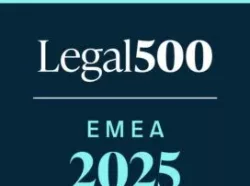The First-tier Tribunal has handed down an important Freedom of Information Act (“FOIA”) judgment concerning briefing notes and readouts from meetings in 2021 and 2022 between then-Prime Minister Boris Johnson and Indian industrialist Gautam Adani.
The information from the meetings was requested by a journalist and campaigner, Dr Chris Garrard. The Cabinet Office refused to disclose any material, relying on the ‘prejudice to international relations’ exemption at section 27 FOIA and the ‘qualified person’s reasonable opinion’ exemption at section 36 FOIA.
However in the run up to the Tribunal hearing, Mr Adani was indicted on criminal charges by a New York Grand Jury, and one of his companies (Adani Green Energy) was charged by the US Securities and Exchange Commission (“SEC”), for allegedly operating one of the largest bribery schemes in history (to the tune of hundreds of millions of dollars) in 2020-2024.
A week before the hearing, the Cabinet Office disclosed much of the information Dr Garrard had requested, but continued to rely on sections 27 and 36 FOIA over part of the briefing notes. Dr Garrard argued that there must still be other information, that the Cabinet Office had failed to identify, that was within scope of his request.
The First-tier Tribunal handed down judgment on 20 March 2025, deciding that:
- The Cabinet Office was required to conduct an entirely fresh search for information, including especially internal emails, that fell within scope of Dr Garrard’s request.
- Evidence about the US criminal indictment and the SEC charges was admissible even though it postdated the information request by some years. It shed light on relevant matters at the time of the request i.e. that there were strong grounds for believing that Mr Adani was running a substantial illegal bribery scheme. It was irrelevant that this information had only come to light later, and was not available to the Cabinet Office at the time of the request.
- Although the Tribunal would be duly deferential to the Executive’s assessment of international relations, that only applied where the Executive fully explained the basis for its views. Here, there was no basis for thinking that all of the material being withheld by the Cabinet Office would prejudice international relations: section 27 was not engaged in respect of all of the information.
- The qualified person’s opinion was unreasoned. Section 36 was not engaged at all.
- The information which was not covered by section 27 was ordered to be disclosed.
- In respect of the little remaining information which was covered by section 27, there were strong public interests on both sides of the balance. Overall, the public interest just favoured maintaining the exemption
Oliver Jackson appeared pro bono for the appellant, Dr Chris Garrard. A copy of the judgment is available here.









